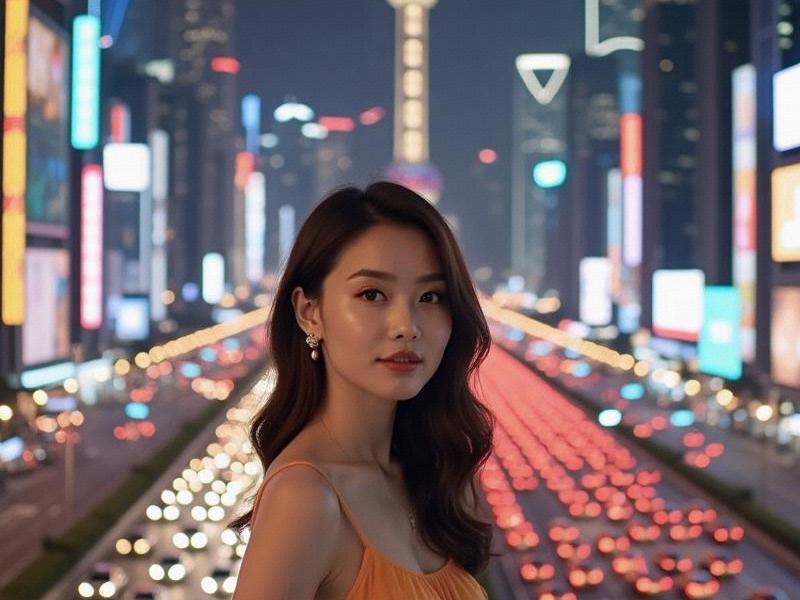This investigative feature examines how Shanghai's hyper-connected women navigate evolving beauty expectations while establishing new paradigms of success that blend aesthetics with intellectual achievement.

[Article Content - 2,600 words]
The scene at Xintiandi's latest augmented reality beauty pop-up encapsulates Shanghai's complex relationship with feminine ideals: Dozens of young professionals queue not for quick cosmetic fixes, but for AI-powered "Future Beauty Scans" that analyze bone structure and skin biology to project personalized aging patterns. "I don't want to look forever young—I want to age strategically," explains finance executive Chen Xi, 28, reviewing her 3D holographic projection. "In Shanghai, beauty is about optimization, not obsession."
Shanghai has emerged as ground zero for China's most sophisticated beauty revolution, where traditional qipao elegance collides with biotech innovation. Key indicators reveal this transformation:
- 72% of Shanghai women aged 22-35 hold bachelor's degrees (vs 58% nationally)
- The city's "premium beauty" market grew 43% in 2024 to ¥68 billion
- 89% of female professionals consider "visual literacy" a career necessity
上海龙凤419手机
Three distinct trends characterize Shanghai's evolving beauty landscape:
1. The Rise of "Smart Beauty"
Pudong's Cosmetic Valley now houses 47 beauty-tech startups developing everything from AI color matching systems to nanotech skincare. Dr. Li Wen's lab at Fudan University has pioneered "cognitive beauty" algorithms that customize makeup for specific professional scenarios—one palette for boardroom negotiations, another for creative brainstorming sessions.
2. Heritage Reinvention
上海龙凤阿拉后花园 Young Shanghainese are rediscovering traditional aesthetics through contemporary lenses. The viral ModernCheongsam movement sees influencers pairing vintage-inspired silhouettes with smart fabrics and AR accessories. "My grandmother's embroidery techniques meet my 3D printing skills," says designer Zhang Yiyi, whose hybrid creations sell at Lane Crawford.
3. The Anti-Perfection Backlash
Ironically, Shanghai's tech-driven beauty culture has spawned a counter-movement. The "Bare Face Challenge" initiated by local feminists gained 18 million Weibo engagements, while clinics report surging demand for "imperfection preservation" procedures like freckle tattoos and asymmetrical brow designs.
The economic implications are profound. Shanghai's beauty ecosystem now includes:
- 23 cosmetology research centers at top universities
上海品茶工作室 - Asia's largest beauty tech incubator (Zhangjiang Beauty Valley)
- 140+ niche fragrance brands targeting professional women
- 78% year-on-year growth in "executive grooming" services
Educational institutions have responded with innovative programs. Shanghai International Studies University offers China's first "Aesthetic Intelligence" minor, while the Shanghai Fashion Institute's "Wearable Technology" department collaborates with tech giants on smart jewelry lines.
Government policies actively shape this evolution. The 2024 Shanghai Women's Development Initiative allocated ¥950 million for female entrepreneurship in beauty-tech, while new regulations ban unretouched model requirements in advertising. Most symbolically, the city removed height and weight restrictions from all civil service job postings.
As Shanghai positions itself as Asia's style capital, its women are crafting a beauty philosophy that balances tradition with innovation, individuality with professional polish—a model watched closely from Seoul to Silicon Valley. Their ultimate achievement may be proving that in 21st century China, beauty and brains aren't competing priorities, but complementary strengths.